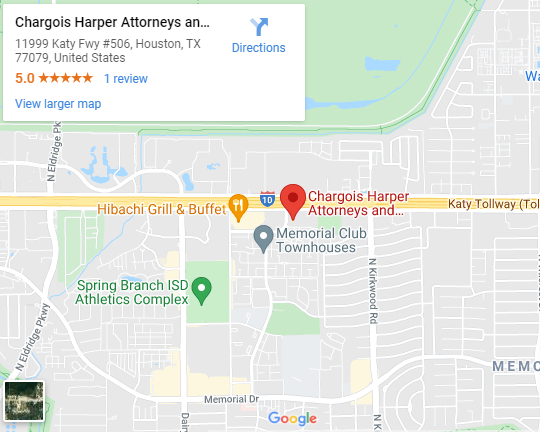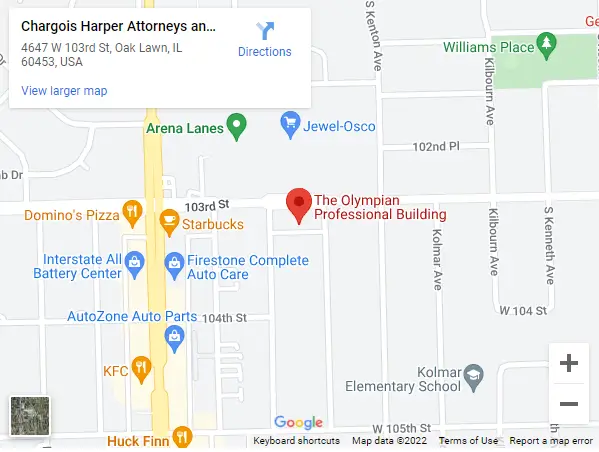Trusts vs. Wills
Making the Right Choice for Your Estate Planning Needs
In estate planning, individuals are faced with critical decisions that will profoundly shape the legacy they leave behind. Among these decisions, the choice between trust vs. will in Houston, TX is an important consideration. Both instruments serve as the foundation of asset distribution, yet they differ significantly in their mechanisms and implications. Understanding the distinctions between trusts and wills is not only a matter of financial matters but also a key element in ensuring the seamless transfer of assets and the protection of one’s legacy.
Quick Summary:
In this article, we will explore the key distinctions between trusts and wills, offering clarity on their benefits and limitations.
- Profound Legacy Decisions: Estate planning involves critical decisions shaping your legacy. The choice between trust vs. will in Houston, TX is crucial, influencing asset distribution and legacy protection.
- Drafting Clear Wills: A well-crafted will is essential for outlining asset distribution and dependent care.
- Benefits of Having a Will: Control asset distribution, designate guardians for minor children, appoint a trusted executor, and avoid intestacy laws with a carefully crafted will.
- Understanding Trusts: Trusts, as legal arrangements, offer flexibility in asset management and distribution.
- Navigating Trusts vs. Wills: Whether a will or a trust is more suitable depends on factors like estate complexity and goals.
At Chargois Harper, we are committed to ensuring that you not only understand the distinctions between trusts and wills but also grasp how each choice can impact your legacy. Our Houston estate planning attorneys are here to help you make informed decisions that align with your specific goals and needs. Contact us now to schedule an initial consultation with our Texas estate planning lawyers and let us help you begin your journey toward peace of mind and a secure future.
What is a Will?
A will, also known as the last will and testament, is a legal document that outlines your wishes regarding the distribution of your assets and the care of your dependents after your passing. Regardless of the size of your estate, having a well-crafted will is a crucial step in ensuring that your desires are carried out and your loved ones are provided for according to your intentions.
A will requires naming an executor, the person who will be entrusted with executing your directives. Often, this is a reliable relative, adult child, spouse, or friend. Whether you’re just starting your estate planning journey or considering updates to an existing will, consulting with our Houston estate planning attorney can provide valuable insights and ensure that your will reflects your current circumstances and wishes.
What are the Benefits of Creating a Will?
Creating a will is an important step in estate planning that can provide several benefits for you and your loved ones. To maximize these benefits, it’s advisable to consult with our Houston TX estate planning lawyer who can provide guidance based on your specific circumstances and ensure that your will complies with the state’s legal requirements. Here are some key advantages of having a will as part of your estate plan:
Control Over Asset Distribution
A will allows you to specify how you want your assets distributed after your death. Without a will, the state’s intestacy laws will determine the distribution, which may not align with your preferences.
Guardianship Designation
If you have minor children, a will allows you to appoint a guardian who will be responsible for their care and upbringing in the event of your death. This designation can provide peace of mind knowing that your children will be well cared for and avoid potential conflicts or disputes among family members.
Executor Appointment
An executor is the person responsible for managing your estate after your death. They will oversee the distribution of assets, payment of debts, and finalizing your affairs. A will allows you to choose someone you trust and who is capable of handling these responsibilities.
Avoid Intestacy Laws
If you pass away without a will, your estate will be subject to Texas intestacy laws. Having a will ensures that your assets are distributed according to your preferences rather than default state laws.
What is a Trust?
A trust is a legal arrangement where one person, the grantor, transfers assets to another person or entity, the trustee, to hold and manage for the benefit of a third person or persons, the beneficiaries. As a planning tool, a trust is a popular choice for many people when creating an estate plan.
Creating a trust requires you to execute a document with instructions for how the trust assets such as your accounts, your property, your house, and your car, should be distributed and placing the property under the trust’s control. If you are considering setting up a trust, it is important to speak to our estate planning attorney in Houston TX who can help you create a trust that meets your specific goals.
What are the Types of Trusts?
There are many different types of trusts, each with its own unique characteristics and purposes. Choosing the right type of trust depends on individual circumstances, goals, and the nature of the assets involved. Some of the most common types of trusts include:
Revocable Living Trust
A revocable living trust is a legal document that allows you to control your assets during your lifetime and dictate how they should be distributed after your death. This flexibility allows for changes in beneficiaries, assets, or the terms of the trust based on evolving circumstances.
Irrevocable Trust
Once established, the terms of an irrevocable trust generally cannot be altered without the consent of the beneficiaries. This means that the trustor gives up control of the assets in the trust and cannot change the beneficiaries or trustees.
Special Needs Trust
A special needs trust is created to provide for individuals with disabilities without jeopardizing their eligibility for government assistance programs. These benefits can include Medicaid, Supplemental Security Income (SSI), and other forms. It allows for the supplemental support of their needs, enhancing their quality of life.
Testamentary Trust
A testamentary trust is a type of trust that is established through a will. It does not take effect until the grantor passes away. The will directs that certain assets should be transferred to the trust, and the trust document specifies how those assets should be managed and distributed to the beneficiaries.
Do I Need a Will or Trust?
Whether you need a will or a trust depends on various factors, including your circumstances, financial situation, and estate planning goals. Consulting with our Houston estate planning attorney is crucial to help you determine the most appropriate strategy. Here are some considerations to help you determine which option might be more suitable for you:
You Might Need a Will If:
- Simplicity: If your estate is relatively straightforward, and you don’t have complex assets or significant wealth, a will may be sufficient to outline your wishes for asset distribution.
- Minor Children: If you have minor children, a will is crucial for naming guardians who will care for them in the event of your death. Without a will, the court will decide on guardianship.
- Probate Is Acceptable: If you are comfortable with the probate process and its associated costs, a will can effectively transfer assets through the court system.
- Flexibility: If you value simplicity and want a document that is easy to update, a will offers more flexibility in making changes to your estate plan.
You Might Need a Trust If:
- Control Over Distributions: If you desire more control over the timing and conditions of asset distributions, a trust allows for detailed instructions on how and when beneficiaries receive their inheritances.
- Avoiding Probate: If one of your primary goals is to bypass the probate process, a living trust can be beneficial. Assets held in a trust can be passed directly to beneficiaries without going through probate.
- Complex Assets: If you have substantial assets, a business, or real estate in multiple states, a trust can provide more efficient management and distribution. Certain trusts may also offer tax advantages.
- Privacy Concerns: If you value privacy and want to keep your financial affairs confidential, a trust is generally more private than a will, which becomes a public record during probate.
- Incapacity Planning: If you want a plan in place for managing your assets in case of incapacity without court intervention, a revocable living trust can address this concern.
You Might Need Both:
- Comprehensive Estate Plan: For many individuals, a combination of a will and a trust creates a comprehensive estate plan. The will can address specific matters like guardianship for minor children, while the trust can handle asset distribution and other complexities.
The Role of a Houston Estate Planning Attorney in Navigating Trusts vs. Wills
Both wills and trusts are valuable estate planning tools that can help you control how your assets are distributed after your death. However, they differ in their complexity, flexibility, and purpose.
Choosing between a will and trust depends on your circumstances and goals. If you have a simple estate and no minor children, a will may be sufficient. However, if you have a complex estate, specific wishes for asset distribution, or concerns about probate, a trust may be a better option.
If you’re struggling with the decisions surrounding trusts and wills, our Houston TX estate planning attorneys at Chargois Harper are here to help. We understand the challenges you face in safeguarding your legacy and securing the financial well-being of your loved ones.
Our estate planning law firm stands ready to guide you through the complexities of estate planning, ensuring clarity in your decision-making. We take the time to understand your individual needs, family dynamics, and financial goals. Schedule a consultation with us today and begin a journey toward peace of mind knowing that your legacy is in capable hands.
Visit Us:

You can count on us to protect your interests and resolve your legal concerns in Texas & Illinois.
Facing legal family disputes in Texas?
Dealing with legal disputes can be complicated and overwhelming, especially when it can affect you and your family, but you don't have to face it alone. Whether it's divorce, child support, custody and visitation, or guardianship, our Houston family law attorneys at Chargois Harper have the knowledge, experience, and compassion to help you through your family law case.
Houston Office
11999 Katy Freeway #506
Houston, TX 77079
Illinois Office
4647 W. 103rd Street, Oak Lawn Illinois 60453
Get Help From Our Illinois & Texas Attorneys
All the information on this website – www.chargoisharper.com – is published in good faith and for general information purposes only. Chargois Harper Attorneys and Counselors at Law does not make any warranties about the completeness, reliability and accuracy of this information. Any action you take upon the information you find on this website (Chargois Harper Attorneys and Counselors at Law), is strictly at your own risk. Chargois Harper Attorneys and Counselors at Law will not be liable for any losses and/or damages in connection with the use of our website.
Copyright © 2024 Chargois Harper Attorneys and Counselors at Law - All Rights Reserved. | Powered by Advantage Attorney Marketing & Cloud Solutions




